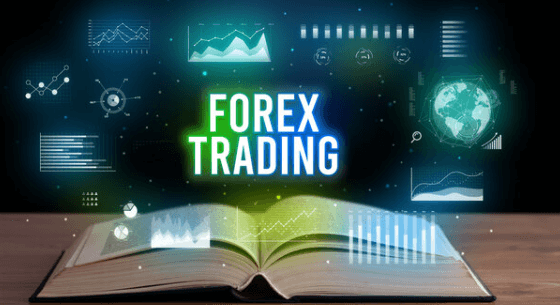Forex Trading for Beginners: A Comprehensive Guide

Are you a newbie interested in the world of financial markets? Have you heard about forex trading and want to get your feet wet? Look no further. This article is tailored specifically for you. “Forex trading for beginners” is a common search term among budding traders, and our goal is to give you a concise and clear understanding of the subject.
What is Forex Trading?
Forex, short for foreign exchange, refers to the global marketplace where currencies are traded. It’s the largest financial market in the world, with a daily trading volume exceeding $6 trillion as of 2021.
At its core, forex trading is about buying one currency while simultaneously selling another. For example, if you think the Euro will rise against the US dollar, you would buy the EUR/USD pair. Conversely, if you believe the Euro will weaken against the dollar, you would sell the pair.
Why is Forex Trading Popular?
Several factors make forex trading attractive:
- Liquidity: Due to its enormous volume, the forex market offers significant liquidity, meaning positions can typically be entered and exited with little slippage.
- 24-hour Market: Unlike stock markets, forex operates 24 hours a day, five days a week. This offers flexibility, especially for those looking to start trading part-time.
- Leverage: Forex brokers offer substantial leverage, allowing traders to control larger positions with a smaller amount of capital. However, this also increases risk.
- Diversity: With various currencies worldwide, there are myriad trading opportunities daily.
How to Start with Forex Trading for Beginners
- Educate Yourself: Before diving in, immerse yourself in forex trading literature, online courses, webinars, and seminars. Knowledge is power.
- Choose a Reputable Forex Broker: Research and select a broker that offers a user-friendly trading platform, good customer service, and transparent fee structures.
- Practice with a Demo Account: Most brokers offer demo accounts, allowing you to practice trading with virtual money. This helps build confidence without risking real capital.
- Start Small: Once you go live, start with a small amount and use minimal leverage until you’re comfortable with the trading environment.
Risk Management
A crucial aspect of “forex trading for beginners” is understanding risk management:
- Stop-Loss Orders: This is an order placed with a broker to buy or sell once the stock reaches a certain price, ensuring you don’t endure significant losses.
- Only Risk What You Can Afford to Lose: This can’t be stressed enough. Always be prepared for the possibility of losing the entire amount you’ve invested in a trade.
- Stay Updated: The forex market can be influenced by news events, economic data releases, and geopolitical events. Staying informed will help you make better trading decisions.
Common Forex Trading Strategies for Beginners
- Price Action Trading: Based on historical price movements, this strategy requires keen observational skills and familiarity with historical data.
- Trend Trading: Here, traders aim to capture gains through the analysis of an asset’s momentum in a particular direction.
- Range Trading: Involves identifying support (price stops going lower) and resistance (price stops going higher) levels, and making trades when the price touches these levels.
- Position Trading: A longer-term strategy where traders hold positions for weeks or even months, based on macroeconomic trends.
Conclusion
Embarking on the journey of forex trading can be both exciting and challenging. With the right mindset, continuous learning, and robust risk management, you can navigate the world of forex trading proficiently.
When researching “forex trading for beginners,” always ensure you’re consuming information from reputable sources. Trading is not a guaranteed way to make money, but with patience, dedication, and the right strategies, it’s possible to achieve success in this vast financial market.

